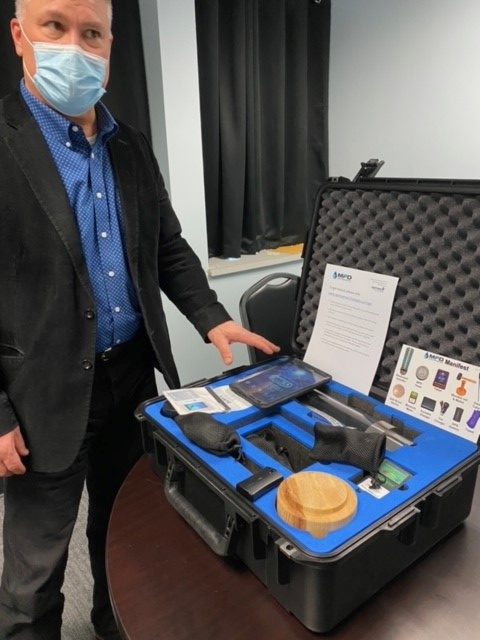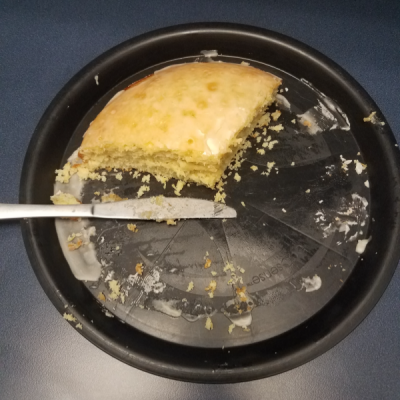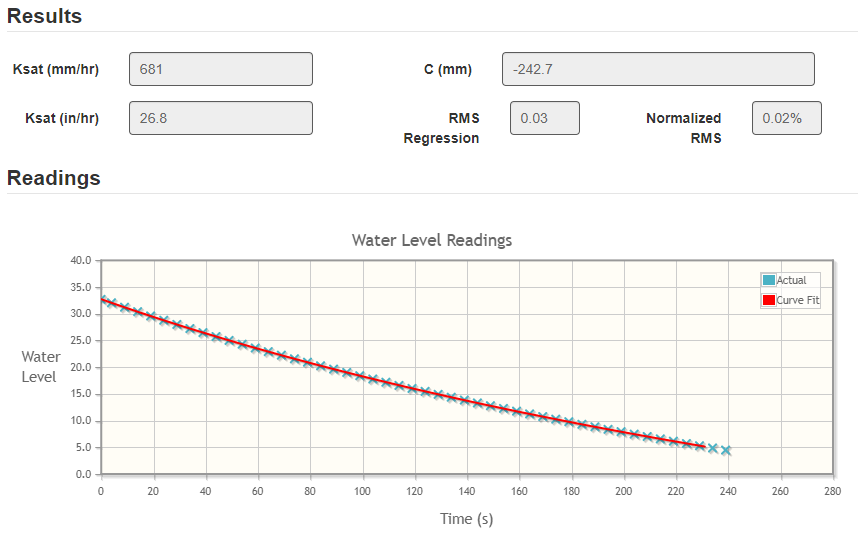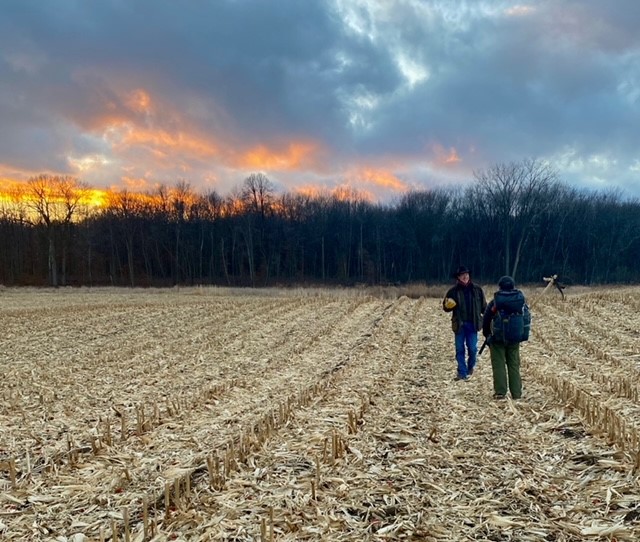Rick Kuntz, CEO of Upstream Technologies in New Brighton saw Carrie’s Give-to-the-Max appeal on LinkedIn “Supporting Freshwater Science.” He said that Upstream Technologies would like to help by offering an MPD Infiltrometer as a donation, if that would be of interest.

Not only was Freshwater interested, but we were working on a proposal to quantify how soil health was good for water quality. It goes like this; if you increase the ability of a soil to infiltrate water by adding organic matter and creating a more open structure, more water soaks in and it is held longer, giving soil microbes time to use nutrients, resulting in decreased and cleaner runoff. The bonus? More water soaks in potentially reaching deeper aquifers.

So Carrie hustled over to their office on the Friday before Thanksgiving for a demonstration and to pick up the equipment before the ground froze. She took a fresh-from-the oven lemon cake as thanks. Nothing she could think of could compare to the generosity of a company donating a $5,000 instrument and accompanying $10,000-worth of report processing (unless that cake was pure gold and worth about $2,000/slice.

She tried it out that very weekend on the field being proposed as a soil health test site. The results look good for a single, short test in a loamy, compacted soil. The new tool is now being reviewed by a partner in this proposed work, Dr. John Beck, retired NRCS State Soil Scientist. Together, Carrie and John will design a monitoring plan to assess how many of these and other tests will be needed to understand how soil changes as conventionally farmed land is restored to a more normal hydrology through cover crops and grazing.
